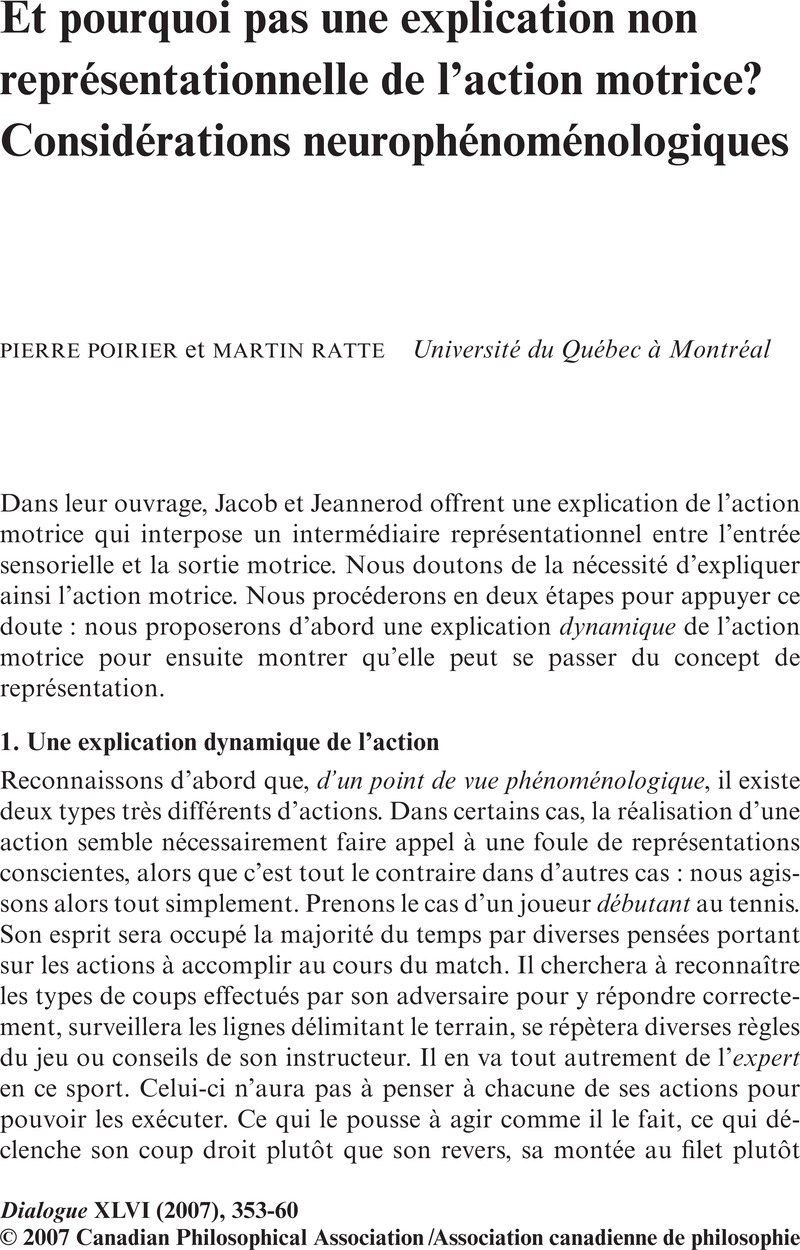No CrossRef data available.
Article contents
Et pourquoi pas une explication non représentationnelle de l'action motrice? Considérations neurophénoménologiques
Published online by Cambridge University Press: 27 April 2009
Abstract
An abstract is not available for this content so a preview has been provided. Please use the Get access link above for information on how to access this content.

- Type
- Book Symposium/Tribune du livre
- Information
- Dialogue: Canadian Philosophical Review / Revue canadienne de philosophie , Volume 46 , Issue 2 , Spring 2007 , pp. 353 - 360
- Copyright
- Copyright © Canadian Philosophical Association 2007
References
Références bibliographique
Beer, R. 1995 «Computational and Dynamical Languages for Autonomous Agents», dans Port, R. F. et Van Gelder, T., Mind as Motion, Cambridge, MA: MIT Press.Google Scholar
Beer, R. D. et Gallagher, J. C. J. C. 1992 «Evolving Dynamical Neural Networks for Adaptative Behavior», Adaptative Behavior, vol. 1, no 1, p. 91–122.CrossRefGoogle Scholar
Clark, A. 1997 «The Dynamical Challenge», Cognitive Science, vol. 21, p. 461–481.CrossRefGoogle Scholar
Dretske, F. 1988 Explaining Behavior: Reasons in a World of Causes. Cambridge MA: MIT Press.Google Scholar
Dreyfus, H. 2002 «Intelligence without Representation: Merleau-Ponty's Critique of Mental Representation», Phenomenology and the Cognitive Sciences, vol. 1, p. 367–383.CrossRefGoogle Scholar
Merleau-Ponty, M. 1942 La Structure du comportement, Paris, Presses Universitaires de France.Google Scholar
Van Gelder, T. 1995 «What Might Cognition Be, if Not Computation?», Journal of Philosophy, vol. 91, p. 345–381.CrossRefGoogle Scholar
Varela, F. 2004 «Neurophénoménologie: une approche méthodologique au problème difficile», dans Poirier, P. et Fisette, D., Problèmes de conscience, Paris, L'Harmattan.Google Scholar
Watkins, C. J. C. H. 1989 Learning from Delayed Rewards. Thèse de doctorat, University of Cambridge.Google Scholar


